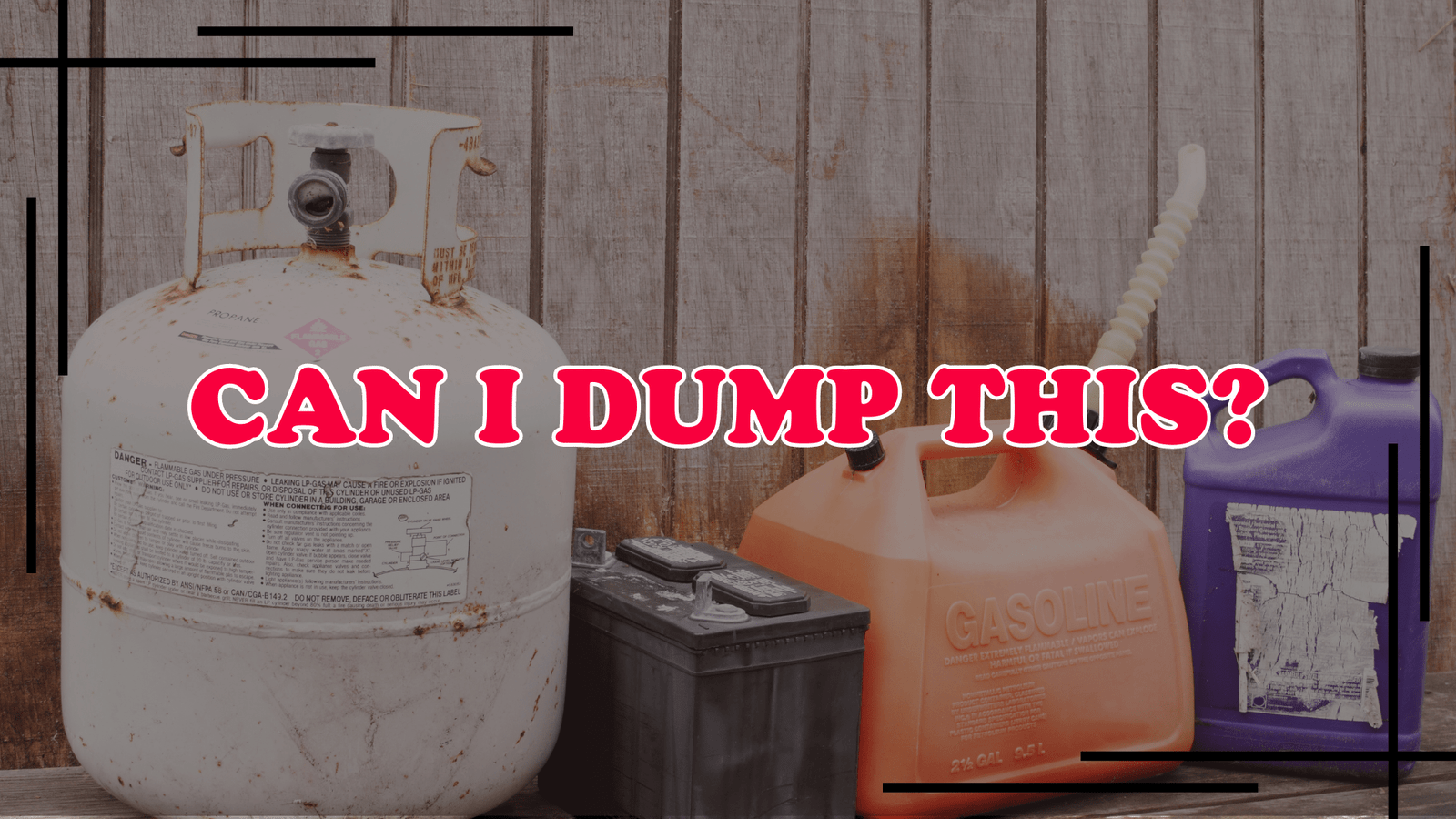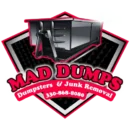
What Can and Cannot Be Thrown in a Dumpster: A Comprehensive Guide by MAD Dumps
Share This Story
When it comes to cleaning up or clearing out, renting a dumpster from MAD Dumps can make the process much easier. However, not everything can be tossed in a dumpster due to environmental and safety regulations. Understanding what’s allowed and what’s not can save you from potential fines and help protect the environment. Let’s dive into the essentials of proper dumpster usage with our straightforward guide on what you can and cannot throw in your rental dumpster.
What You Can Throw in a Dumpster
General Trash and Household Items
- Everyday waste: Common garbage and kitchen trash are perfectly acceptable.
- Clothing and toys: Old clothes and toys that aren’t donation-worthy can go in.
- Non-upholstered furniture: Wooden furniture or metal items are usually fine.
Construction and Home Improvement Debris
- Drywall: Pieces of drywall from construction or renovation projects are allowed.
- Wood: Lumber, including non-treated wood scraps from your latest project.
- Flooring materials: Carpet, tiles, and laminate materials can be disposed of in dumpsters.
Yard Waste
- Branches and leaves: Clean yard waste is typically acceptable.
- Grass clippings and weeds: As long as they are free from chemical treatments.
Miscellaneous
- Cardboard and paper: Make sure these are not soiled by food or chemicals.
- Non-hazardous materials: Items that don’t pose a risk to the environment or public health.
What Cannot Be Thrown in a Dumpster
Hazardous Materials
- Paints and lacquers: Oil-based paints, lacquers, and some stains contain harmful chemicals.
- Batteries: Car batteries and household batteries contain dangerous acids and metals.
- Tires: Due to their shape and materials, tires can trap harmful gases and are not permitted.
Electronics
- Refrigerators and air conditioners: Appliances that contain Freon or other refrigerants are prohibited.
Chemicals and Liquids
- Motor oil, gasoline, and antifreeze: These are highly toxic and require special disposal methods.
Other Restricted Items
- Asbestos: A dangerous material that needs specialized removal.
- Medical Waste: Syringes, medications, and other related items pose serious health risks.
Best Practices for Dumpster Use
- Review Local Regulations: Always check local rules, as some materials might have specific disposal requirements in your area.
- Ask Questions: When in doubt, contact MAD Dumps for guidance on whether an item is permissible.
- Plan Waste Separation: Organize your waste to ensure hazardous materials do not end up in your dumpster by mistake.
- Be Mindful of Weight Limits: Even permitted items can become problematic if they exceed the weight limit of your dumpster.
Conclusion
At MAD Dumps, we strive to make your waste removal process as straightforward and environmentally friendly as possible. By knowing what can and cannot be thrown in a dumpster, you are not only complying with the law but also contributing to a safer and cleaner planet. If you have any questions about specific items or need more detailed guidance, our team is always here to help. Remember, responsible disposal begins with informed choices!
